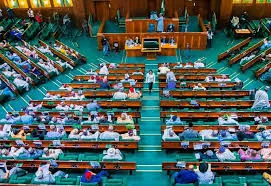
Nigeria’s Lawmakers Seek to Establish Prime Minister Role
The Nigerian House of Representatives has advanced a bill proposing the establishment of the Office of the Prime Minister as the head of government, while retaining the President as the head of state. This bill, among 32 constitutional amendment proposals, successfully passed its second reading on March 27, 2025.
Key Provisions of the Bill:
- Prime Minister as Head of Government: The Prime Minister would be responsible for leading the government’s executive functions, effectively serving as the chief executive officer.
- President as Head of State: The President would assume a more ceremonial role, representing the unity and continuity of the state.
This proposed shift aims to transition Nigeria from its current presidential system to a parliamentary or hybrid system, reminiscent of the governance structure during the First Republic (1960-1963).
Additional Constitutional Amendments Under Consideration:
- Gender Representation: A bill to allocate specific seats for women in the National Assembly and state legislatures to enhance gender inclusivity in governance.
- Electoral Reforms: Proposals to reduce the timeframe for resolving pre-election petitions and establish pre-election tribunals to expedite electoral dispute resolutions.
- Eligibility Criteria: A review of the qualifications required for individuals to be elected as President, Vice-President, Governors, and Deputy Governors.
- Federal Capital Territory Status: An examination of the Federal Capital Territory’s role concerning presidential elections.
- State Creation: Bills advocating for the establishment of new states, such as Wan State and Gobir State.
To date, approximately 113 constitutional amendment bills have passed the second reading in the House.
Implications:
Transitioning to a parliamentary system could lead to significant changes in Nigeria’s political dynamics, potentially affecting the balance of power between branches of government and altering the electoral process. Proponents argue that such a system may reduce governance costs and increase accountability, while critics caution about the complexities involved in such a transition.